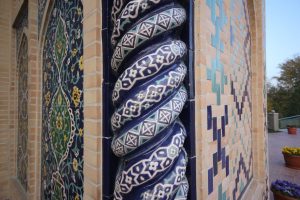On October 24, Uzbekistan will hold a presidential election. While the ballot will feature five names, incumbent President Shavkat Mirziyoyev is expected to win in a landslide. Mirziyoyev’s Uzbekistan is not as repressive as Islam Karimov’s, but the political arena remains heavily circumscribed by both restrictive policies and an atmosphere unconducive to genuine open debate.
Five years into Mirziyoyev’s rule of Uzbekistan, there remains little room for serious political opposition. Back in December 2019, as Uzbekistan approached parliamentary elections, the government pushed the tagline “New Uzbekistan-New Elections” but registered no new parties for the poll. (Technically, the Ecological Movement was registered as party for the first time, but the 15 seats it won in the 2019 election merely matched the 15 seats it had been mandated by the state in the previous parliament.) And while the campaign featured novel innovations like televised debates, the resulting parliament was nearly identical in composition to the previous body.
The same holds true for the presidential election, which only features candidates from the five registered political parties represented in parliament. Mirziyoyev represents the Uzbekistan Liberal Democratic Party (shorted to OʻzLiDeP in Uzbek); the heads of Adolat, Milliy Tiklanish, and the Ecological Party — Bahrom Abduhalimov, Alisher Qodirov, and Narzullo Oblomurodov respectively — are running; and the only woman in the race is the deputy leader of the People’s Democratic Party of Uzbekistan, Maksuda Varisova.
Independent candidates are not permitted to run and efforts by parties both new and old to get registered failed in a flurry of intimidation and flat-out rejection. Official barriers remain a serious impediment, even though the ability of people to even try and form new political parties is a departure from the Karimov era. In its effort to get registered, the Haqiqat va Taraqqiyot (Truth and Progress) Social Democratic Party gathered the required 20,000 signatures, only to have those signature rejected by the Ministry of Justice this summer. Erk, a party with roots at the very beginning of Uzbek independence, was also rejected and its presidential candidate, a former singer, abandoned politics altogether under extreme pressure.
Beyond official barriers are unofficial barriers: most notably (from my perspective as an outsider) a sentiment, ossified during the Karimov era into the very bedrock of Uzbek politics, that there is a thin line between order and complete chaos. Allowing unfettered dissent would be a critical transgression of that line, a dangerous slippery slope. This is, of course, an oversimplification. There’s far more room in Uzbekistan for discussion and debate than five years ago, but certain topics remain off-limits and the freedom of speech stretches only so far. People remain wary of actively participating in the democratic process.
The current presidential campaign was dubbed “invisible” by Joanna Lillis in a report for Eurasianet earlier this month.
“So far,” the OSCE Office for Democratic Institutions and Human Rights (ODIHR) election monitoring mission wrote in an interim report on October 8, “there has been no direct or meaningful engagement between contestants.”
There has been a light degree of policy sparring obliquely via the press. For example, speaking to voters last week Qodirov, the leader of Milliy Tiklanish suggested taxing remittances sent home by migrant workers abroad. Two days later, also speaking to voters, Mirziyoyev dismissed the idea of taxing migrant workers’ earnings, calling it “absolutely wrong.”
A primetime televised debate is scheduled for October 19, but not between the candidates — just between their proxies. Early voting has already begun.

































